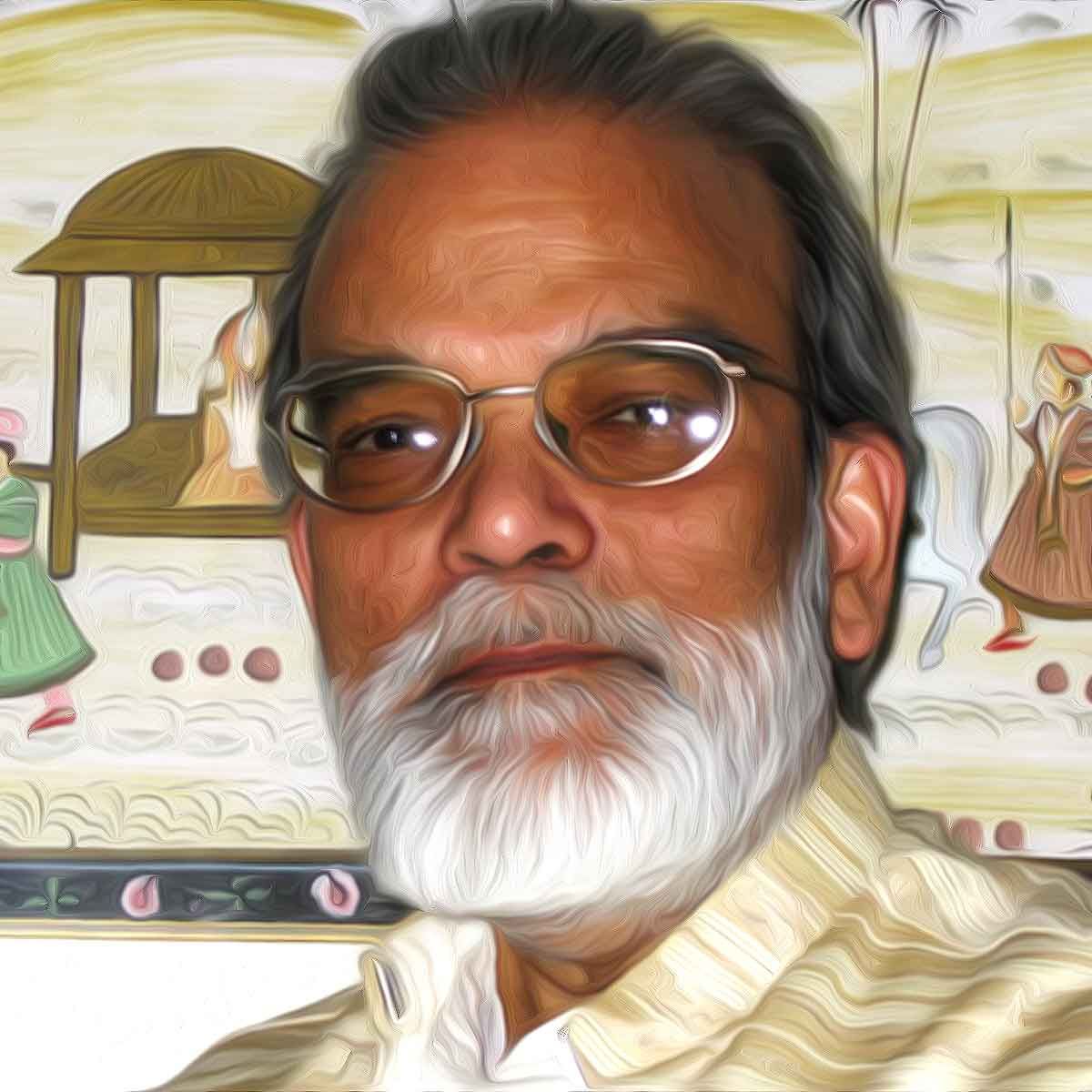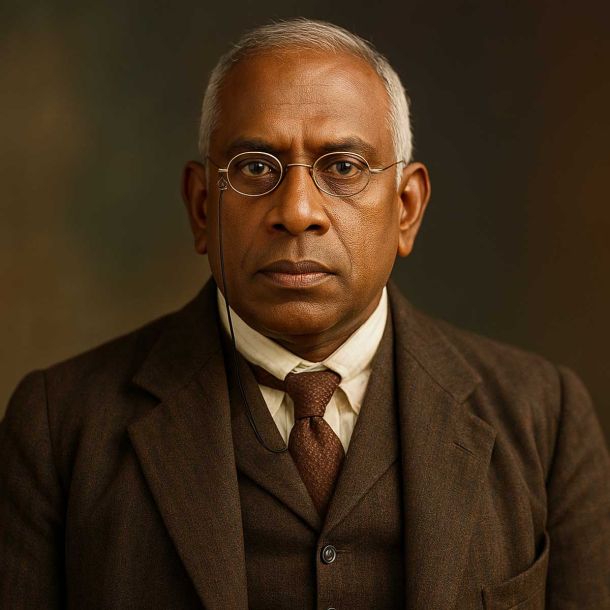MORE COVERAGE
Professor M. Shahid Alam, Northeastern University: The 101 Most Dangerous Academics in America

When The Professors was first published in February 2006, it was greeted by cries of outrage from the academic Left. The author was denounced as a reincarnation of Joseph McCarthy and his book as a “blacklist,” although no evidence existed to support either claim and both were the opposite of the truth.
Far from being a “blacklist,” the text explicitly—and in so many words—defended the right of professors to teach views that were unpopular without fear of political reprisal. The author also publicly defended the First Amendment rights of Ward Churchill, the most notable case of a professor under attack for his political views.
The very nature of the attacks, on the other hand, served in part to confirm its analysis. The Professors describe a segment of the university which has supplanted scholarly interests with political agendas and corrupted intellectual discourse in the process. Its profiles are of professors who regard educational institutions as instruments of social change and understand their task as inculcating sectarian doctrines to promote such change.
An ironic aspect of this ambition is that those who regard themselves as academic progressives are more accurately understood as academic reactionaries, determined to turn back the university clock to a time when they were largely denominational and their mission was to instill religious creeds. This process has been underway for more than three decades, with disquieting results. Under the influence of tenured radicals, American liberal arts faculties have become more narrow-minded and intellectually repressive than at any time in the last hundred years.
Today, we would call such academic practices “indoctrination,” a project antithetical to the very idea of democratic education. In a democracy, educators are expected to teach students how to think—not what to think. In teaching controversial issues, they are expected to refrain from telling students which side of the controversy is “politically correct.” Instead, they are tasked with developing students’ abilities to think for themselves.
Professional restraint is thus a condition of academic freedom as applied to the instruction of students. Fortunately, it is still observed by most members of the academic community, regardless of their political disposition. Stanley Fish, a distinguished liberal academic, has summarized this discipline with admirable clarity: “Academic freedom is the freedom of academics to study anything they like; the freedom, that is, to subject anybody of material, however unpromising it might seem, to academic interrogation and analysis... Any idea can be brought into the classroom if the point is to inquire into its structure, history, influence, and so forth. But no idea belongs in the classroom if the point of introducing it is to recruit your students for the political agenda it may be thought to imply.”
In keeping with a consensus on academic freedom that has lasted for nearly a century, most universities stipulate that the pursuit of knowledge should be “disinterested,” that faculty should observe the principle of neutrality on controversial matters, and that they should refrain from indoctrinating their students. These precepts are eloquently set forth in the classic statements on the academic freedom of the American Association of University Professors (AAUP), an organization historically associated with the academic freedom tradition that has recently strayed from that mission.
Professor M. Shahid Alam, Northeastern University
— Professor of Economics, Northeastern University, Boston
— Likens the 9/11 terrorists to America’s Founding Fathers, as men who were willing to die “so that their people might live, free and in dignity”
— Claims that the al Qaeda’s jihad is a defensive jihad against Western aggressors
M. Shahid Alam is one of the thousands of tenured academics at American universities whose intellectual guide is Marxism and who thinks that America’s terrorist enemies are really “freedom fighters” and America is a Great Satan. In an essay appearing in the December 2004 issue of Dissident Voice (“A Radical Newsletter in the Struggle for Peace and Justice”), Alam likened Mohammed Atta and the al-Qaeda terrorists who attacked the World Trade Center on 9/11 to the American patriots who defended themselves against the British at Lexington and Concord and launched a historic movement for liberty and freedom. Wrote Professor Alam: “On September 11, 2001, nineteen Arab hijackers too demonstrated their willingness to die—and to kill—for their dream.”
Professor Alam’s inflammatory and fanatic prose was published widely on the Internet. When challenged by email, he rebutted his critics with an anti-Semitic sneer: “Why is it that the only hateful mail I have received is signed by Levitt, Hoch, or Freedman?” If Professor Alam had made similar slurs about African Americans or gays, he would have been reprimanded and probably dismissed by the school administration. As his targets were only Jews, the university administration showed no interest.
In January 2005, Alam published a follow-up article in Counterpunch.org, a well-known website that supports Iraq’s terrorists as “resistance fighters” against American “imperialism.” Alam’s article was titled “The Waves of Hate: Testing Free Speech in America,” and in it, he portrayed himself as a heroically misunderstood and persecuted figure who was testing the limits of free speech while “hate websites”—he named the anti-al-Qaeda blog www.jihadwatch.org, and www.littlegreenfootballs.com—hounded him for speaking the truth. In his Counterpunch article, Professor Alam defended his claims. “In their war of independence, the Americans may not have targeted civilians, but they did commit atrocities, and they did inflict collateral damage on civilians.” Alam seemed surprised that people would take exception to his analogy: “I have since been wondering why my suggestion that al-Qaeda—like the American colonists before them—was leading an Islamic insurgency has provoked such a storm of vicious attacks.”
References:
- The Professors: The 101 Most Dangerous Academics in America - David Horowitz
- Some of these attacks have been described and analyzed in the author’s Indoctrination U: The Left’s War Against Academic Freedom. They are also described in articles the author has written, including “The Strange Dishonest Campaign Against Academic Freedom,” frontpagemag.com, and “Intellectual Muggings,” frontpagemag.com
- Research: Robert Spencer
 Support Us
Support Us
Satyagraha was born from the heart of our land, with an undying aim to unveil the true essence of Bharat. It seeks to illuminate the hidden tales of our valiant freedom fighters and the rich chronicles that haven't yet sung their complete melody in the mainstream.
While platforms like NDTV and 'The Wire' effortlessly garner funds under the banner of safeguarding democracy, we at Satyagraha walk a different path. Our strength and resonance come from you. In this journey to weave a stronger Bharat, every little contribution amplifies our voice. Let's come together, contribute as you can, and champion the true spirit of our nation.
 |  |  |
| ICICI Bank of Satyaagrah | Razorpay Bank of Satyaagrah | PayPal Bank of Satyaagrah - For International Payments |
If all above doesn't work, then try the LINK below:
Please share the article on other platforms
DISCLAIMER: The author is solely responsible for the views expressed in this article. The author carries the responsibility for citing and/or licensing of images utilized within the text. The website also frequently uses non-commercial images for representational purposes only in line with the article. We are not responsible for the authenticity of such images. If some images have a copyright issue, we request the person/entity to contact us at This email address is being protected from spambots. You need JavaScript enabled to view it. and we will take the necessary actions to resolve the issue.
Related Articles
- Professor of Political Science at Columbia University, Professor Lisa Anderson regards America’s wars of liberation in Afghanistan and Iraq as “an assault on the entire region”: The 101 Most Dangerous Academics in America
- Professor of Feminist Studies at University of California, Bettina Aptheker describes her teaching philosophy as “revolutionary praxis”: one of her course syllabi describes lesbianism as the “highest stage of feminism”
- Asst. Professor of Comparative Literature at Columbia University, Gil Anidjar is an Anti-Israel activist, apologist for Islamic radicalism and identifies “good teaching” with pro-Palestinian activism: The 101 Most Dangerous Academics in America
- A Strange New World - Road was clear for Indira Gandhi, nothing could stop her and there seemed no opposition to her regime, 'The New York Times' marvelled at how the JP movement had just melted away
- Professor Hamid Algar, University of California, Berkeley: The 101 Most Dangerous Academics in America
- "What one loves in childhood stays in the heart forever": One of the most cherished shows of our childhood, Malgudi Days was aired during late 80-90s based on short story collection by RK Narayan that had all elements to unite family for television time
- "Purpose of creation of man, according to Islam, is that he should worship Allah": As there is one Allah, one Guide, one Book, there is also one Prayer, caught and fixed in a single formula, Islam has all ideological ingredients of imperialism in any age
- “Instead of causing chaos and rocking someone else’s boat, you need to row your own”: Prof Berry, a strong advocate of racial preferences in employment & education, said “Civil Rights laws were not passed to give civil rights protection to all Americans”
- "Fighting for Islam, that is not suicide. They kill themselves for Islam": Ihsan Bagby, Prof. of Islamic studies at Kentucky University declared that Muslims can never be full citizens of the US as they can never commit to its institutions & ideologies
- "If chicken and geese pass a resolution about peace, the wolf is not convinced": Hindus have to know that Christianity & Islam ain't religions but imperialist ideologies whose appetite has been whetted by running roughshod over a large part of the world
- When true Historian Sita Ram Goel's Challenge Became a Nightmare for Marxist Historians
- “Dharma is law in its widest sense—spiritual, moral, ethical and temporal": How Chanakya's Arthashastra shaped the Telling of Ancient Indian History and should be read simply for its sheer brilliance in the area of statecraft and economics
- "Aum Mahadevaya Namaha - The Great Universal God": Sanatana Dharma forces human mind, time and time again, to accept the fact that Divine is all that exists, both clean and unclean, pure and impure, auspicious and inauspicious
- "Behold it is born. It is already sanctioned by the blood of martyred Indian youths": Madam Bhikhaiji Cama, the Brave lady to first hoist India’s flag on foreign Soil - Formative Years
- “Who says exactly what they’re thinking? What kind of a game is that?”: Committed Marxist, Prof. Berlowitz teaches “resistance” as in, “Privatization must be resisted,” - only a Marxist could make the connection between resisting privatization and peace
Related Articles
Twitter Coverage
Satyaagrah
Written on
Satyaagrah
Written on
Satyaagrah
Written on
Satyaagrah
Written on
Satyaagrah
Written on




















